I’ve started to list some of the more popular myths and misconceptions below.
Avoiding sources of misinformation will help you steer clear of erroneous nutrition and health information. You can find some popular sources of misinformation at these links:
- Nutrition “Experts” You Shouldn’t Trust
- Nutrition Sources You Should Avoid (Excellent comprehensive list by Michael Hull).
Popular Myths & Misconceptions
Detox or Cleansing Diets Are Effective
-
Why cleanses are so popular, even though they don’t work (Timothy Caulfield, Business Insider)
- Unless you’re a heroin addict, you probably don’t need to detox. Here’s why. (Julia Beluz, Vox.com)
- Debunking Detox (Sense About Science)
- Cleansing – Not as Clean as You Thought! (Jill Parnell, No Baloney Blog)
- Detox cleanses may not live up to the hype (CBC)
- Thinking of Detoxing? Time to Think Again (Tim Crowe, Thinking Nutrition Blog)
- Forget detox diets – just boost your body’s natural defense/detox system with these tips (Rosie Schwartz, Enlightened Eater Blog)
- The Detox Myth: What your alternative health provider isn’t telling you (Science-Based Pharmacy Blog)
Almond Milk is Nutritious
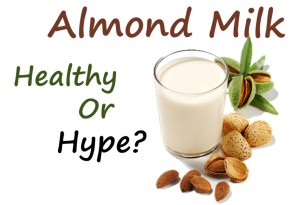 Most of the health claims for almond milk relate to the low calorie content, low saturated fat content, the benefits of almonds, or the added vitamins and minerals. If you delve deeper into the internet (not recommended!), you’ll find claims from preventing Alzheimer’s (because it has Vitamin D), to improving vision, or increasing muscle growth and healing. And, quite concerning is the claim that almond milk is a suitable substitute for infants (it definitely isn’t).
Most of the health claims for almond milk relate to the low calorie content, low saturated fat content, the benefits of almonds, or the added vitamins and minerals. If you delve deeper into the internet (not recommended!), you’ll find claims from preventing Alzheimer’s (because it has Vitamin D), to improving vision, or increasing muscle growth and healing. And, quite concerning is the claim that almond milk is a suitable substitute for infants (it definitely isn’t).
The term “almond milk” is misleading in terms of nutrition, because it doesn’t contain large amounts of the nutrients in almonds or milk (and technically “milk” should come from a mammary gland). Many of the claims for almond milk relate to the health benefits of consuming almonds: given the meager amount of almonds in almond milk (about 4 almonds in 1 cup of almond milk), these health benefits are doubtful. The beneficial nutrients that some almond milks boast on their labels (e.g., high in vitamin E, rich in calcium) are vitamins and minerals added during processing.
More Reading:
- Healthy or Hype? Almond Milk (Sheila Kealey)
Carbohydrates Make Us Fat
Although some people successfully lose weight by restricting their carbohydrates, it is not carbohydrate intake that makes people fat. The insulin-carbohydrate theory of obesity (suggesting that insulin drives fat storage and that eating low-carb helps people “burn” more fat than eating higher carb) is often cited as if it is fact, while there is considerable debate and new evidence suggesting that it is incorrect.
One problem with the “low carb” craze is lumping all carbohydrates into one category, equating legumes to candy. Low carb proponents claim that dietary guidelines promoted increased carbohydrate intake and “made people fat,” but there is no good evidence to support this claim.
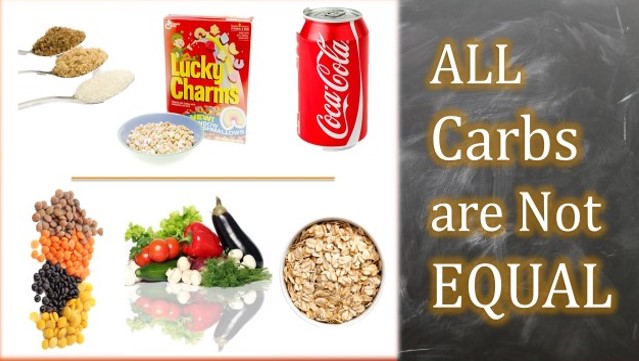
More Reading:
- Is the Insulin Theory of Obesity Over? (Nutrition Wonk)
- Fats vs Carbs: Clarifying Conspiracies, Controversies, and Confusion (Sheila Kealey)
- Is it time to stop blaming insulin for “fat storage”? (David Despain)
- The Carbohydrate Hypothesis of Obesity: a Critical Examination (Stephan Guyenet, PhD)
Canola Oil is Bad for You
Myths about canola oil abound, including claims that is it toxic, unfit to eat, or damages the heart. This is fearmongering and not evidence-based.
- The Truth About Canola Oil (Nutrition Action)
- How Healthy Is Canola Oil Really? (Brierley Wright, M.S., R.D.)
- Canola oil myths debunked (Snopes)
Dairy/Milk is Pro-Inflammatory
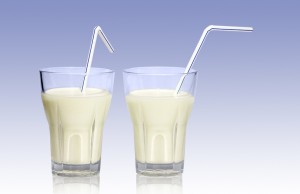 Though milk is not necessary for a healthy diet, there is a fair bit of pseudoscience surrounding claims that dairy is bad for us. One such claim is that dairy is “pro-inflammatory.” A study just published in the journal Critical Reviews in Food Science and Nutrition investigated evidence for the dairy-inflammation link. Researchers reviewed 52 clinical trials conducted in humans, and found that consumption of dairy products, particular fermented products, is associated with anti-inflammatory properties, meaning that dairy consumption potentially reduces chronic inflammation and could benefit health.
Though milk is not necessary for a healthy diet, there is a fair bit of pseudoscience surrounding claims that dairy is bad for us. One such claim is that dairy is “pro-inflammatory.” A study just published in the journal Critical Reviews in Food Science and Nutrition investigated evidence for the dairy-inflammation link. Researchers reviewed 52 clinical trials conducted in humans, and found that consumption of dairy products, particular fermented products, is associated with anti-inflammatory properties, meaning that dairy consumption potentially reduces chronic inflammation and could benefit health.
- Dairy products and inflammation: A review of the clinical evidence (Critical Reviews in Food Science, August 2015).
- Should You Give Up Dairy Because ‘It Causes Inflammation?’(Fitness Reloaded)
Skim / Lowfat Milk is bad for you
The fat in dairy products is mostly saturated, and decades of research link high saturated fat intakes to type 2 diabetes, some cancers, and heart disease. Though new research suggests that dairy fat might not be as harmful as once thought, we still have much to learn about the influence of various types of fats on health. If you are someone who consumes a lot of dairy, choosing only full-fat options means the saturated fat and calorie intake can add up quite a bit; and that’s in addition to the saturated fats you’re getting from meat and other foods. That’s a lot of calories that a person might not need, and calories that aren’t providing much nutrition, and potential harm. If it’s “healthy” fats you are interested in, look for those whose health effects are backed by solid scientific evidence from a variety of studies: these are the fats found vegetables, nuts, seeds, and fish.
Contrary to some beliefs, nonfat milk is healthy and there is nothing in process that makes it unhealthy (the fat is spun out in a centrifuge).

- Fools, Fanatics and Fat-Free Milk (David Katz)
- How Bad for You is Lowfat Milk? (Monica Reinagle, MS, LDN)
Dietary Guidelines Are Making Us Fat and Sick
A common theme in many internet posts is how the dietary guidelines are outdated, and are making people fat or sick. Common criticisms include that the guidelines . . .
“caused the obesity and/or type 2 diabetes epidemic,”
“are not based on scientific evidence,”
“recommend carbohydrates/grains and they are the cause of obesity,”
“recommend a low-fat diet, and this made people fat,”
“made people replace fat with carbs, and they got fat.”
What’s lacking in these anti-guideline statements is good science.
A critical piece that is ignored in these claims is that most people weren’t following dietary guidelines. Read More >>
Gluten/Wheat/Grains are Bad for You
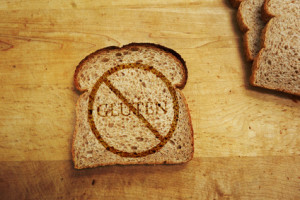
The gluten-free trend is a popular one, and many people have hopped on the bandwagon thinking it might improve their health, digestion, and athletic performance. People with celiac disease (about 1% of the population) need to absolutely avoid gluten because it damages their intestines; others believe they are “gluten sensitive,” which is a debatable condition that recent studies have called into question. Read More >>
More Reading:
-
- Healthy or Hype? Gluten-Free Diets (Sheila Kealey)
- Gluten sensitivity: new epidemic or new myth? (Nash DT, Slutzky AR. Baylor University. Medical Center; 2014;27(4):377-378.)
- Athletes avoiding gluten or grains – is there good evidence? (Sheila Kealey)
- Hidden risks of going gluten free for health (Consumer Reports)
- Experts Question Benefits of Gluten-Free for All but a Small Minority (Wall Street Journal)
- Eat More Gluten: The Diet Fad Must Die (Jeffrey Kluger, Time Magazine)
-
Gluten elimination diets: Facts for patients on this food fad (Kathleen Cadenhead, MD, Margo Sweeny, MD, BC Medical Journal)
-
Dissecting the Myth: Why Grains and Gluten Aren’t Bad for You
“Natural” Sweeteners are Healthier Than Sugar
 The health impact of consuming too much sugar is big news, and many people are looking for alternatives. What about so-called “natural” sweeteners? Food marketers want you to think they are healthier, and labels boasting terms like “naturally sweetened” or “honey-sweetened” are a common fixture.
The health impact of consuming too much sugar is big news, and many people are looking for alternatives. What about so-called “natural” sweeteners? Food marketers want you to think they are healthier, and labels boasting terms like “naturally sweetened” or “honey-sweetened” are a common fixture.
This line of thinking has made its way into cookbooks, recipe blogs, and many home kitchens. One of my cake recipes wasn’t “healthy,” a reader commented, because it used sugar instead of a more “natural” sweetener like honey.
Despite marketing claims and labels that suggest otherwise, “natural” sweeteners are not better for you than refined sugar. Most people would be better off consuming less sugar from all sources, “natural” and refined. Use “natural” sweeteners because you like their flavour or they work well in your cooking/baking. But they are not better for you nor will they improve your health. Treat them as you would sugar and consume judiciously. Read more >>
Saturated Fat is Good For You
 Years of research have associated saturated fat with heart disease, some cancers, and diabetes. But recent studies suggest that some types of saturated fats, such as “medium chain triglycerides” (MCTs) may not be as harmful to the heart as once thought. However, the evidence isn’t solid, and MCT’s influence on heart disease remains unclear. Most of the research in question deals with saturated fat and heart health, and not the links between saturated fat and other chronic diseases (e.g., diabetes and cancer). Interpretation of the research can be challenging, as it’s impossible to look at saturated fat (or other nutrients) in isolation: a diet that is low in saturated fat can be quite unhealthy if it contains too many refined starches and sugars. We need more research, and keep in mind that just because something is not as bad as once thought, doesn’t mean it’s beneficial, especially in copious amounts.
Years of research have associated saturated fat with heart disease, some cancers, and diabetes. But recent studies suggest that some types of saturated fats, such as “medium chain triglycerides” (MCTs) may not be as harmful to the heart as once thought. However, the evidence isn’t solid, and MCT’s influence on heart disease remains unclear. Most of the research in question deals with saturated fat and heart health, and not the links between saturated fat and other chronic diseases (e.g., diabetes and cancer). Interpretation of the research can be challenging, as it’s impossible to look at saturated fat (or other nutrients) in isolation: a diet that is low in saturated fat can be quite unhealthy if it contains too many refined starches and sugars. We need more research, and keep in mind that just because something is not as bad as once thought, doesn’t mean it’s beneficial, especially in copious amounts.
Also, the most health protective diets (according to years of research) include vegetarian diets, the DASH diet, and the Mediterranean diet, which are all low in saturated fat.
More Reading:
- Research Review: Behind the News saying “Saturated Fat could be Good for You” (Katherine @NutritionWonk and Kevin @Nutrevolve)
- “Shaky Science” Doubts Saturated Fat Linked to Heart Disease
Q&A with Professor Martijn Katan (CSPI) - Saturated Fat Working Group: Cross-cutting Topics of Dietary Guidance and Public Health Importance (Dietary Guidelines 2015 Working Group)
- Butter vs Margarine: Evidence refuting butter-is-healthy claims. (Reijo Laatikainen)
- THE BIG FAT SURPRISE: A CRITICAL REVIEW Part 1; Part 2
- War of the Worlds: Butter vs Oil (Nutrevolve)
- Carbs, SFAs, and Circulating Fatty Acids (Nutrevolve)
- Dietary fat and heart disease study is seriously misleading (Harvard Nutrition Source)
- Saturated Fat: Friend or Foe? (Fooducate.com)
Foods or Food Avoidance with Questionable Health Claims
This list includes popular foods or supplements that don’t necessarily stand up to the hype or health claims behind them. This doesn’t mean they can’t be part of an overall healthy diet, but keep this in mind if you’re purchasing the items for health benefits.
- Agave
- Bone Broth
- Coconut Oil
- Healthy or Hype? Coconut Oil
- Harvard Health Letter advice
- Coconut oil: fact or fiction? (Rosie Schwartz)
- Dairy/Milk
- Dairy/Milk is pro-inflammatory myth (Critical Reviews in Food Science and Nutrition, Aug 2015)
- Drink Milk, or Don’t. But Maybe Read This First. (Courtney Plush, MS, RD, March 2016)
- Dried Cranberries
- Fruit Juice
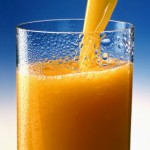
- Habitual intake of fruit juice predicts central blood pressure (Appetite, January 2015)
- Fruit Juice Vs. Soda? Both Beverages Pack In Sugar, Health Risks (NPR Health)
- Fruit juice: just another sugary drink? (Lancet Diabetes & Endocrinology)
- The Rise and Fall of Orange Juice as a Health Drink
- Are there health benefits to juicing?
- Juicing: Healthy Habit or Blood Sugar Bomb?
- Do you think fruit juice is healthy & natural?
- What has more sugar, OJ or soda?
- Gluten free foods (for better health)
- Gluten avoidance
- Lectins
- Phytic Acid
- Raw milk (avoid this)
- Saturated Fat
- Sea Salt
- Vitamins & Supplements
 Dietary Supplements Contaminated (New York Times)
Dietary Supplements Contaminated (New York Times)- Take food, not supplements (Weighty Matters)
- Supplements: To Take or Not to Take?
- Can the body have too much iron?
- 3 new studies conclude most vitamins/supplements should be avoided
- Dismal news for supplements: @marionnestle reports the better the research, the fewer the benefits
- Do you take vitamins or other supplements? You likely don’t need them & they could be harmful
- The vitamin myth: why we think we need supplements.
- AntioAdrxidant supplements in exercise: worse than useless?
Dubious Health Claims/Practices
Healthy or Hype Series
- Healthy or Hype? Almond Milk
- Healthy or Hype? Agave Syrup
- Healthy or Hype? Buttered/Bulletproof Coffee
- Healthy or Hype? Veggie Chips
- Healthy or Hype? Chocolate Milk for Recovery
- Healthy or Hype? Coconut Oil
- Healthy or Hype? Protein Powder
Other Questionable Health Claims . . .
Microwaves
- Do microwaves destroy nutrients in food? (Sciencebasedmedicine.com)
- Myths about microwaves (Nutritionovereasy.com)
_________________
Page updated February 8, 2017
Share This: